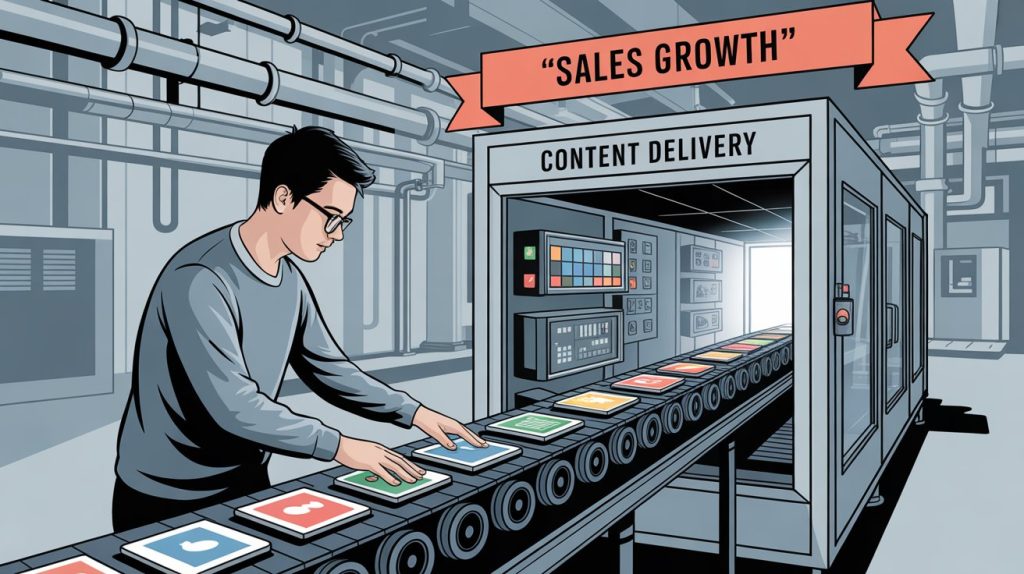You’ve decided to hire a social media manager. You hand them the keys to your brand’s digital presence, filled with dreams of viral posts, a flood of new followers, and a massive spike in sales.
But what if those dreams are based on a few misunderstandings?
The relationship between a business owner and a social media manager is often misunderstood. Many business owners expect a magic bullet—a person who can single-handedly solve all of their marketing problems and guarantee overnight success.
The truth is, a social media manager is a strategic partner, not a magician. Their role is to be an expert on the platform, not a god of the algorithm or a master of market demand. By understanding the clear boundaries of their role, you can set realistic expectations and build a much more successful, long-term partnership.
Let’s break down exactly what a social media manager can and cannot do to help you grow your business.
The Reality Check: What a Social Media Manager Actually Does
1. The Content Creator vs. The Sales Generator
A social media manager’s primary role is to create engaging posts, stories, and videos that reflect your brand’s message. They are masters of creative storytelling and can use a variety of formats—from educational carousels to entertaining Reels—to help your business reach a wider audience and build an authentic brand presence.

However, they cannot single-handedly generate direct sales that are often dependent on a host of other factors outside of their control, like your product’s quality, its pricing, and overall market demand.
Their work is often at the top of the marketing funnel, building brand awareness and trust. While their content can lead to sales, the conversion process itself involves your website, your product, and your customer service—all of which are not typically within their purview.
2. The Community Builder vs. The Algorithm Controller
A great social media manager builds a loyal community and strengthens customer relationships. They do this by engaging with comments, replying to direct messages, and moderating online discussions, making your audience feel heard and valued. They act as a human face for your brand, fostering a sense of belonging and trust.
What they cannot do is control or change how the algorithm prioritizes content. The algorithm is a complex, ever-changing machine that no one person can control.
Instead, their job is to understand the algorithm’s rules and create content that performs well within those rules. This means they are experts at creating highly engaging content, using trending audio, and analyzing data to give your posts the best possible chance of being seen by more people.
3. The Content Strategist vs. The Entire Marketing Department
Your social media manager can and should plan and create a cohesive content calendar that aligns with your brand’s goals and audience needs.
They are the experts on the platforms they manage, knowing what types of content resonate, when to post, and what campaign themes will be most effective. Their strategic work is the backbone of your social media presence.

But they cannot replace all other essential marketing strategies like email marketing, search engine optimization (SEO), and paid ad campaigns.
Social media is just one part of a larger, integrated marketing strategy. Thinking they can do it all—from writing your weekly newsletter to optimizing your website’s search rankings—is a recipe for burnout and failure.
4. The Insight Provider vs. The Broken Product Fixer
A social media manager provides valuable insights on what content is performing well, tracking key metrics like engagement, reach, and follower growth. They use this data to guide future strategies and make informed decisions about your content, acting as a data-driven partner.
However, a social media manager cannot fix a broken product or service. Their role is to showcase what’s already great about your business, not to cover up its flaws.
If a product is poor, no amount of clever social media management can save it from negative reviews and a frustrated audience. Their job is to amplify the good, not to hide the bad.
5. The Lead Generator vs. The Guaranteed Results Promise
A social media manager can bring new potential leads to your business. They can build brand awareness, increase website traffic, and connect you with people who are likely to be interested in what you do. They are experts at crafting calls-to-action and creating content that piques curiosity.

But they cannot promise guaranteed results and sales. The nature of social media is that it is unpredictable. A great post can go viral, but there’s no way to guarantee it.
Any social media manager who promises you a specific follower count or a certain number of sales is likely being unrealistic. Their role is to increase the likelihood of success, not to guarantee it.
The Bottom Line
A social media manager is a valuable, strategic partner who can help you build an authentic brand, foster a loyal community, and grow your digital presence. They are an expert in their field, and their skills are essential for navigating the complex world of social media.
The key to a successful relationship is clear communication and realistic expectations. By understanding their role and trusting their expertise, you can work together to achieve sustainable, authentic growth. A great social media manager is a force multiplier for a great business—but they can’t do it all on their own. The real magic happens when you combine their platform expertise with your business vision and a great product. When you empower your social media manager to do what they do best—build a community and a brand—you unlock their full potential and set your business on a path to smart, fast, and authentic growth.
What’s the biggest misconception you’ve heard about a social media manager’s job? Share it in the comments!

